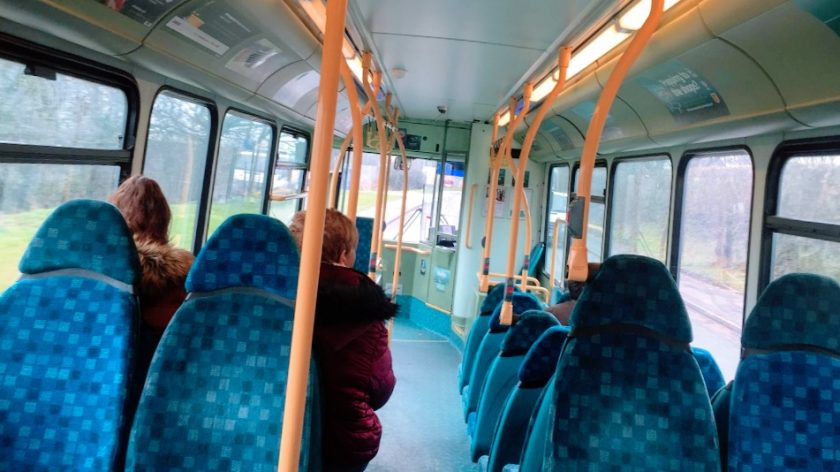Cost-of-living crisis: Calls for subsidised bus and rail travel in Wales

Subsidised bus and rail travel should be provided to people in Wales to help with the cost-of-living crisis.
That is the view of members of the Climate Change, Environment and Infrastructure Senedd Committee’s.
Today the committee have released its latest report, which looks at the future of bus and rail travel in Wales.
It found that the poorest areas of Wales – often those most dependent on public transport – were the areas hit hardest by reductions in bus services.
The committee has now called on the Welsh Government to do more to encourage people to use public transport and to provide subsidised bus and rail travel.
Transport poverty
A key recommendation from the report urges the Welsh Government to provide support to people who are living in ‘transport poverty’ as a result of the cost-of-living crisis.
Transport poverty is when a household spends more than 10 per cent of their income on travel.
The report states that this has become increasingly prevalent with the increase in fuel prices and the rise of bus and train fares in recent years.
The Committee heard evidence that transport poverty affects some groups disproportionately. Those particularly affected include disabled people – who make up a quarter of bus passengers – as well as older people and women.
Reduced services and fewer passengers
The Deputy Minister for Climate Change, Lee Waters MS and the Confederation of Passenger Transport told the Committee that passenger numbers for bus and train services in Wales are 30-35 per cent below pre-pandemic levels.
This was largely down to more people working from home rather than commuting.
However the Committee also heard that the decision to drastically reduce services because of Covid-19 has also contributed to the drop in users and that many of the bus routes or rail services that were stopped have not returned.
Bus services in Wales dropped by 36 per cent between March 2020 and March 2021 and rural areas saw the biggest percentage reduction.
Academics at the University of South Wales also found the decline in access to services by bus was greatest in the most deprived areas of Wales, further disadvantaging those communities.
International inspiration
To make bus and rail travel more appealing, the report urges the Welsh Government to look at and learn from the examples set by other countries.
The Committee makes specific mention of Germany, where a recent experiment allowed a month’s unlimited travel on regional train networks, trams and buses for €9; and also references Spain, who have introduced free travel on short and medium distance trains run by the national rail operator.
Recently, the UK Government committed to bringing forward similar measures in England from January 2023 and both Scotland and Northern Ireland have also made similar commitments.
Llyr Gruffydd MS, Chair of the Climate Change, Environment and Infrastructure Committee, said: “An efficient, popular bus and rail network is crucial for the Welsh economy and is especially important if the Welsh Government’s target of ‘net zero emissions by 2035’ is to be achieved.
“The drive to get more people to use public transport has stalled due to the pandemic and this isn’t being helped by cutbacks. It’s unacceptable that it’s the poorest areas of Wales that have been hit hardest by reductions in bus services.
“Undoubtedly, the cost-of-living crisis will exacerbate the situation of many families who are already in transport poverty, and we believe that it’s imperative that the Welsh Government sets out how it will help people in this situation. Nothing should be off the table, including creative solutions like we have seen in Germany and Spain and which are now being promised for other parts of the UK.
“You can’t expect more people to use buses and trains if those services are inconvenient and expensive.
“We’re urging the Welsh Government to listen and to act on our recommendations if they are serious about encouraging more people to use public transport.”
Spotted something? Got a story? Email: [email protected]
Latest News
